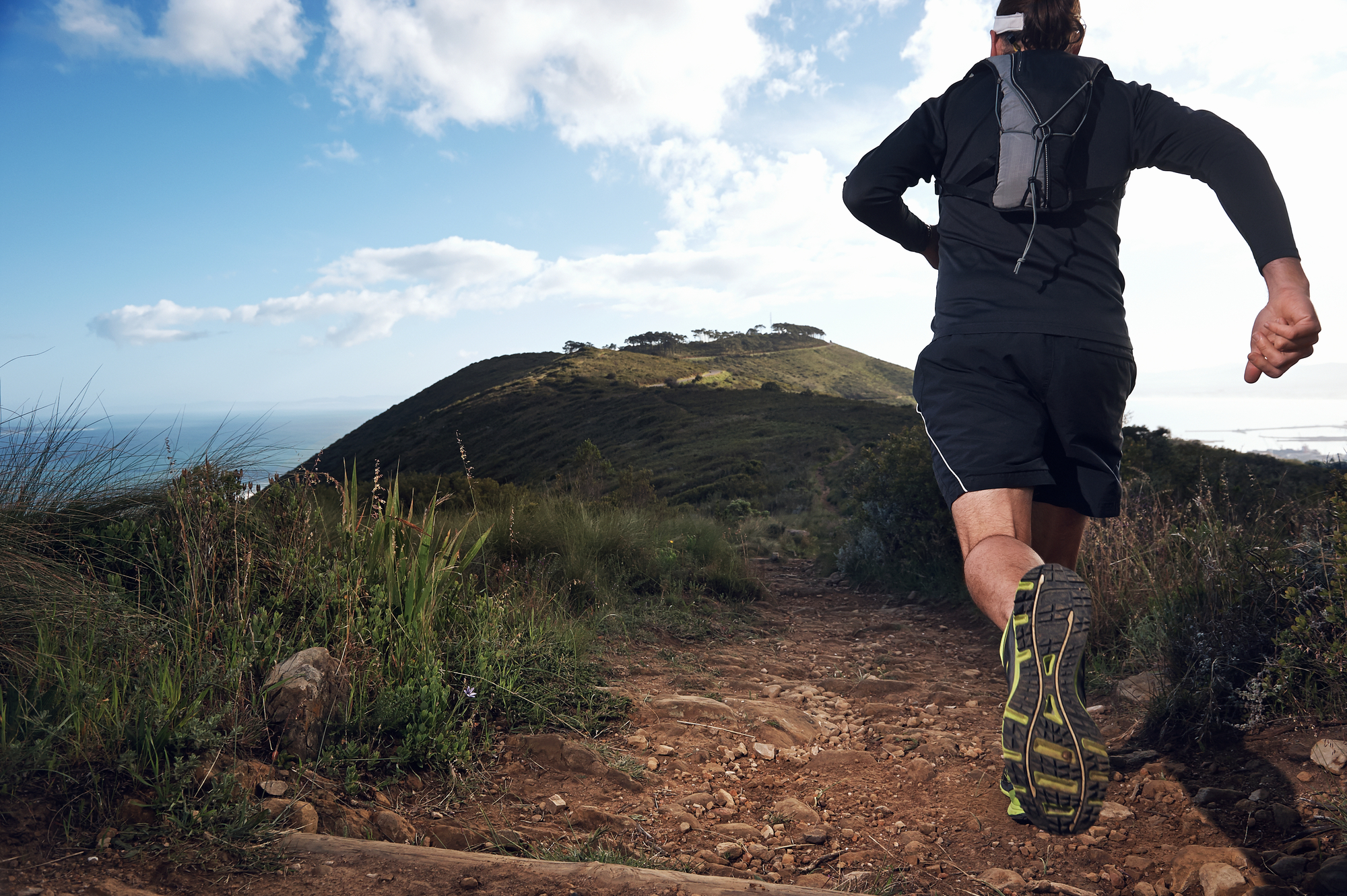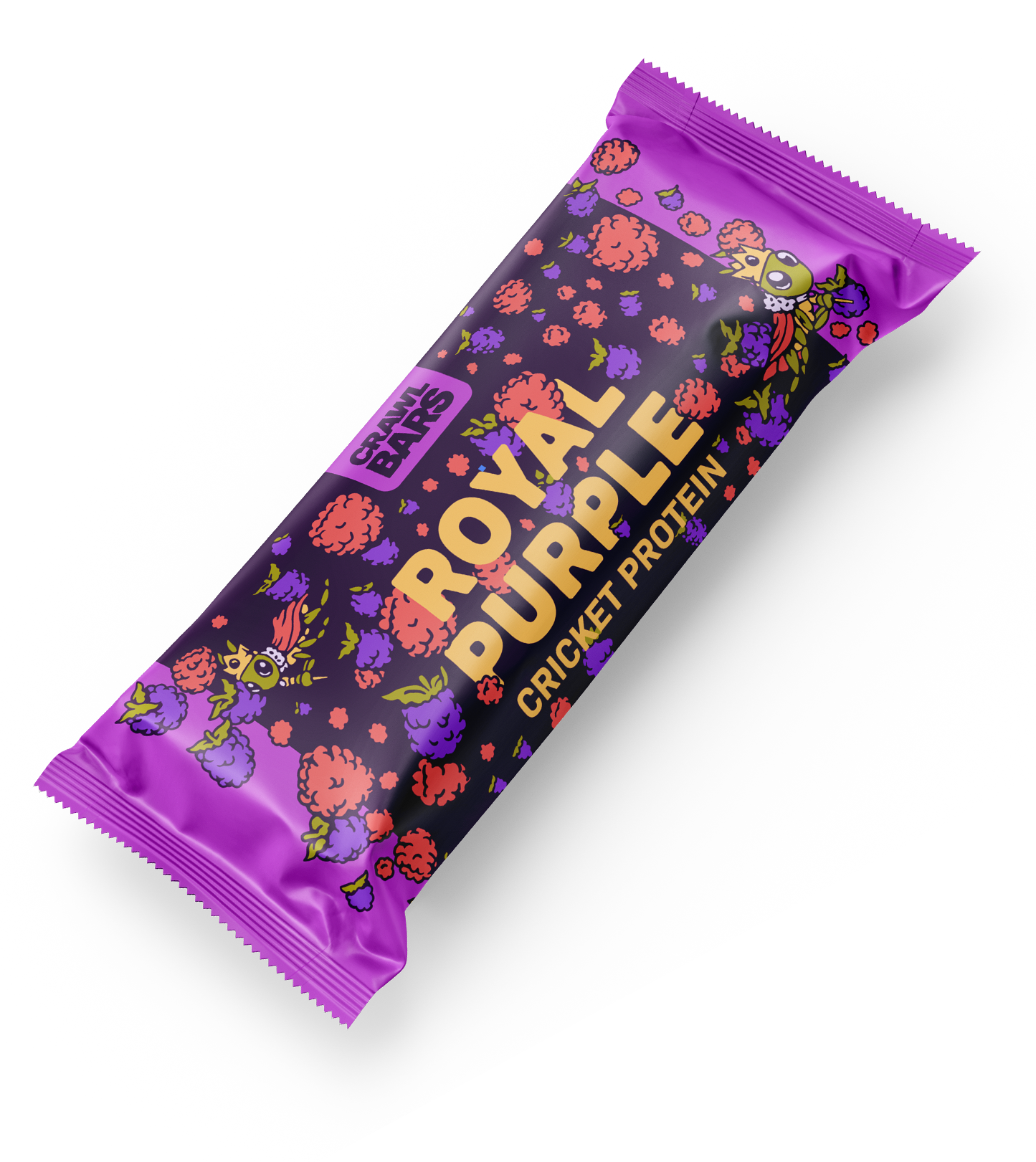Staying hydrated while running seems obvious, right? You get thirsty, you drink - no need to overthink it. However, drinking does take a little bit of consideration if you want to do it right as a runner, especially if you’re out running on trails.
Water makes up around 60% of the human body, so it’s crucial to keep your water intake close to that number in order to allow for proper bodily functions. Water lubricates your joints, aids in digestion, regulates your core temperature through perspiration, protects your spinal cord and nerves, promotes proper bowel movements and urination, and many other physiological processes.
When you don’t think enough water, you not only lessen your effectiveness in running, but you can also experience dehydration issues such as headaches, muscle cramps, and fatigue.
Here are some tips to help you determine how much and when you need to drink while on the trail. Keep in mind that these tips aren’t exactly one-size-fits-all, since water intake requirements can differ based on age, sex, fitness level, and amount of physical activity.
How Much Do You Need to Drink?
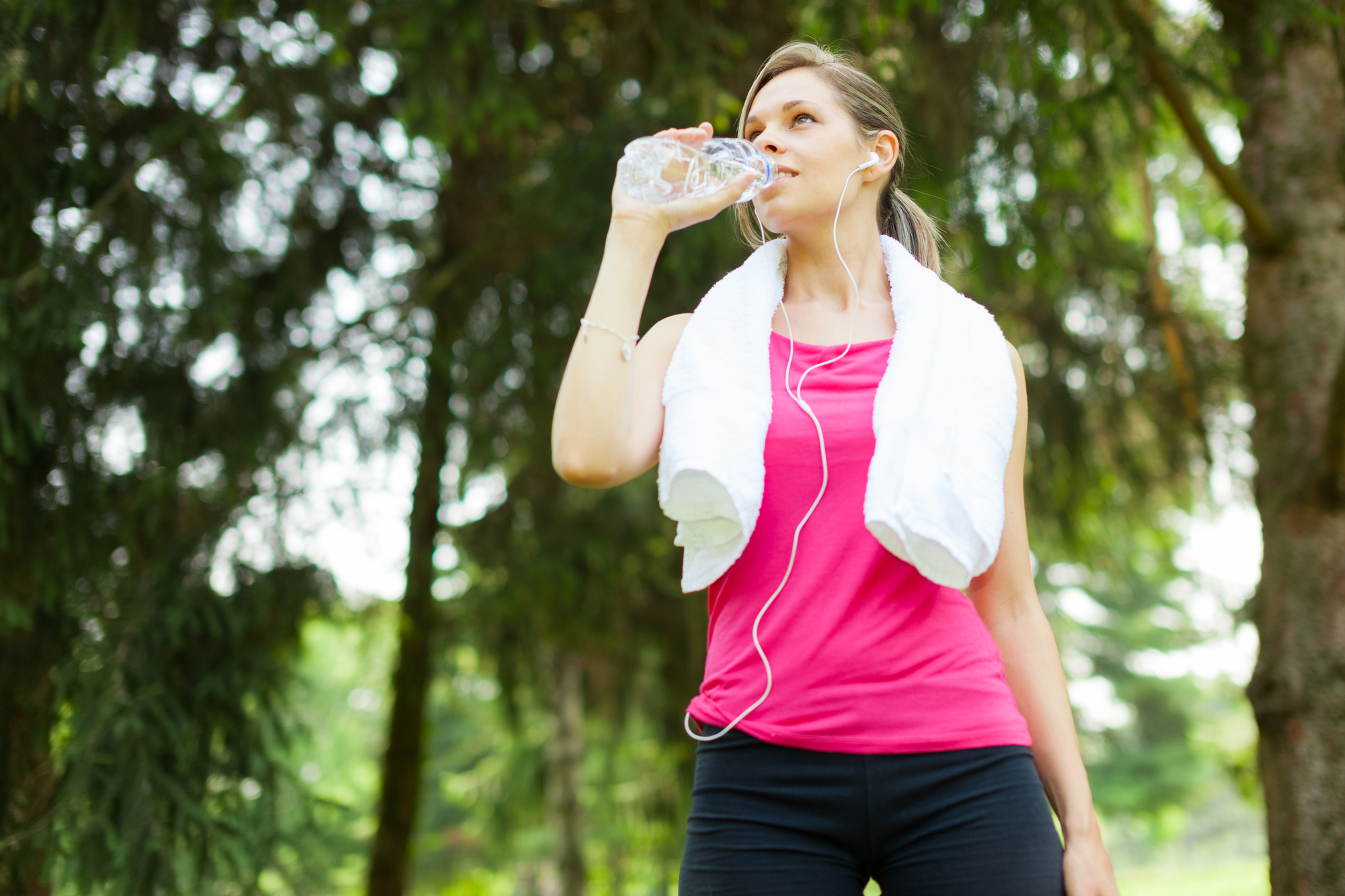
So, the most important question is: how much do you need to drink when out on the trail?
While this can depend on numerous factors such as your body size, the climate, and the distance you want to run, a good baseline is approximately 125 ounces (15.5 cups) for adult men and 91 ounces (11.5 cups) for adult women.
That might sound like a lot, but you don’t have to take it all in one go! Better yet, you can also get the liquids from other sources such as fruits or sports drinks. It might be difficult at the start to intake the right amount of water, so take your time and just increase your intake before each trail run until you reach the right amount.
Aside from the amount of water you need to drink, you should also be mindful of when you’re drinking the water. Here’s a short guide on the best times to drink water before, during, and after a trail run:
Before Running
Drink 12-20 ounces of water in the hours leading up to your run. Make sure to space it out since you don’t want to feel bloated before you start running.
If your urine is clear colored, or very pale yellow, it’s a good sign that you’re well-hydrated. However, if the color is more concentrated (yellow to dark yellow), you might need to drink another 8-16 ounces.
During Running
If you’re only running for under an hour, you’ll only likely need to take a few sips during your run. However, for runs that last more than 60 minutes, you’ll need fluids as well as electrolytes and carbohydrates. You can opt for sports drinks to provide the necessary electrolytes and carbohydrates. If you don’t want to carry a separate bottle for sports drinks, you can use electrolyte powder to mix with your water.
If you are running in hot and humid conditions, you might accidentally drink too much water to compensate for your thirst and sweatiness. Yes, drinking too much is a thing, and it’s a dangerous one.
Overhydrating can lead to a condition called hyponatremia, which is an electrolyte imbalance when your sodium levels are too low. The symptoms of hyponatremia include headache, confusion, nausea, cramps, and fatigue, to name a few.
One of the ways to avoid hyponatremia is by calculating your sweat rate so that you know how much water you need to replace while on a run.
To figure out how much water you lose through sweating per hour, get a scale and weigh yourself naked before and after a 60-minute run. Make sure that you don’t drink anything or use the bathroom before, during, and after the run to get the most accurate measurements.
As a rule of thumb, you lose around 16 ounces of water through your sweat for every pound lost on the scale. You can calculate the amount of water you need to drink after your run; for example, if you lost 1.5 pounds of body weight after your run, you’ll need to drink around 24 ounces of water.
After Running
The good news is that you can eat and drink as you normally would in order to recover from most runs. However, if you went for a particularly long or difficult run or one in extremely hot or humid conditions, you should supplement your normal meal with an additional 1-2 glasses of water.
Make sure to drink whenever you feel thirsty throughout the first day after a run. You can also change out plain water for sports drinks or add sports powders to your water to help increase your electrolyte and carbohydrate levels.
Remember, the best way to recover quickly after any run is to make sure that you’re well-hydrated and keeping a stable level of electrolytes and carbohydrates in your body.
Hydration Tips
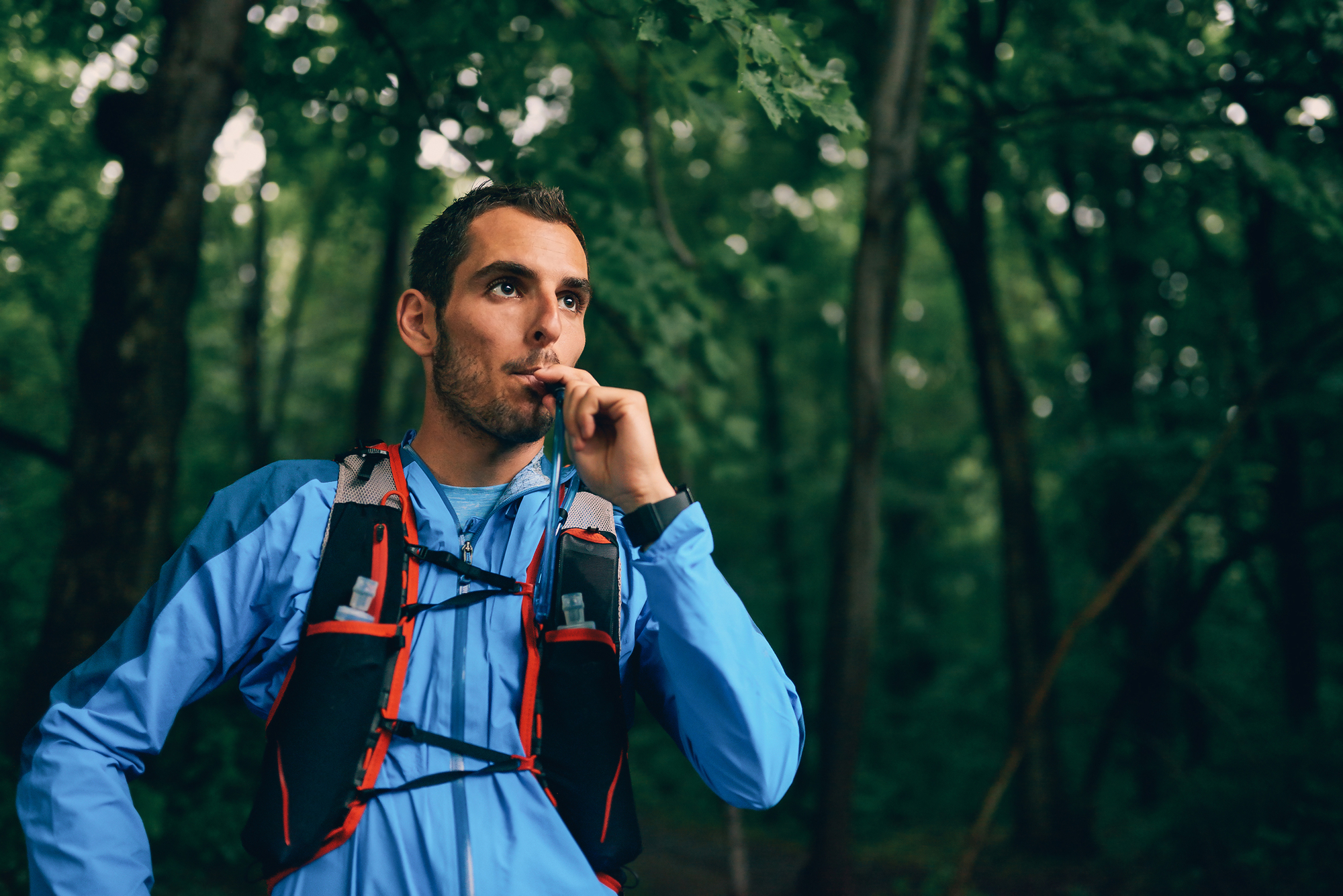
Whether you’re a newbie trying to figure out how best to hydrate while on the trails or you’re a veteran runner trying to improve their hydration game, these tips can make hydrating a bit easier:
- If you’re drinking anything besides plain water, it’s a good idea to experiment with different sports drinks or powders until you find a flavor and ingredient combo that works for you. Depending on your unique physical needs and personal fitness goals, you may need a product with different amounts of sugar or sodium, or you might like cherry over grape! Finding the right hydration product is all about trial and error.
- If you’re practicing for a particularly difficult trial run, practice your hydration strategy. Most likely, you’ll need to bring your own hydration device since you won’t find water refilling stations while out on the trail. There are several options to choose from such as wearing a hydration pack, a hydration vest, or a hydration belt. You can also carry a bottle but it can be tedious to keep it in your hands while running.
- If you don’t want to use a hydration device, there are instances when you can plot a route that allows you to loop around your car or your camp so that you can hydrate.
Water or Sports Drinks When Running?
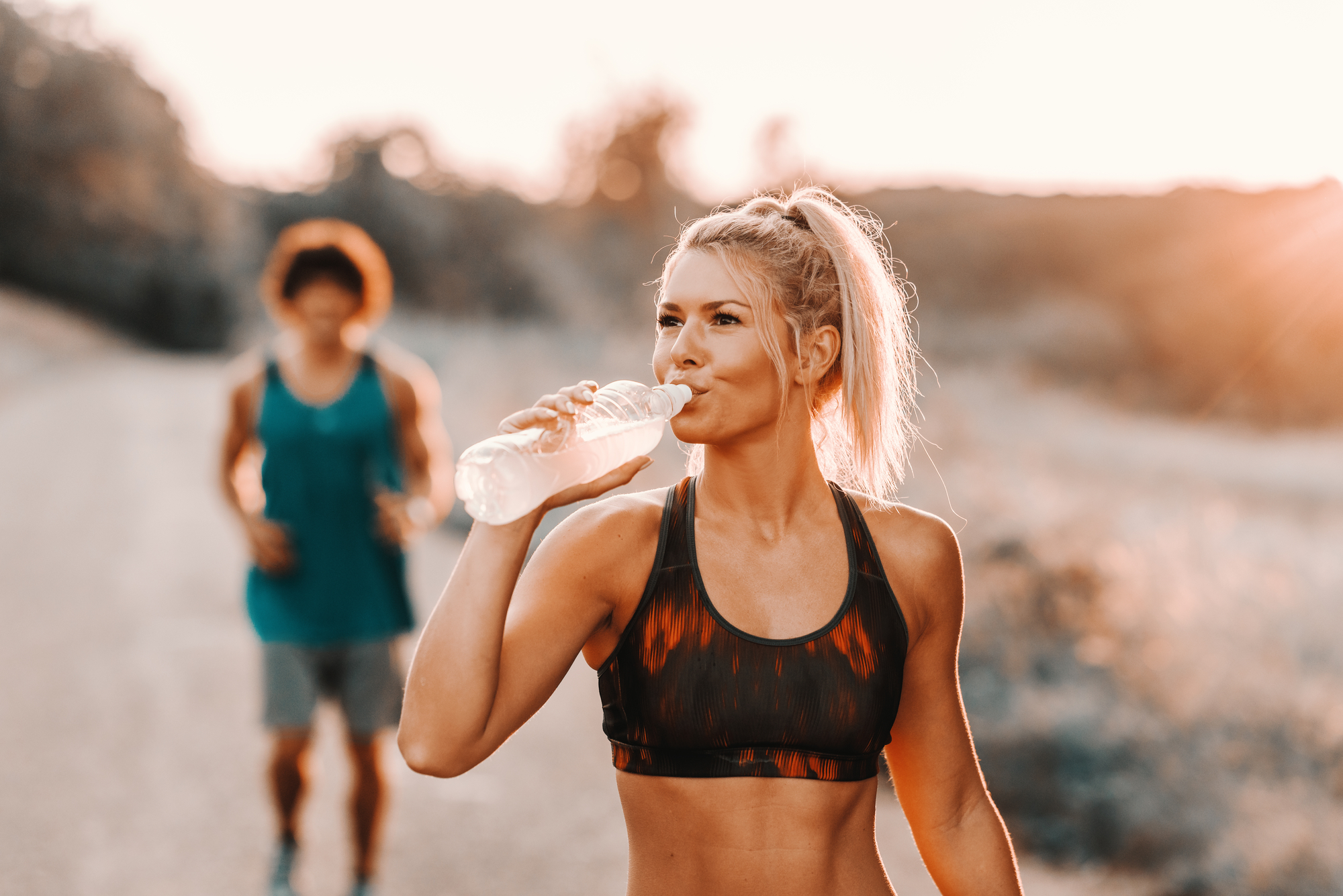
As referenced above, water makes up most of the body, so it's really important to keep your hydration level at the right levels to ensure proper physiological functions as well as athletic performance. Whether you're a casual runner or you’re preparing for a long-distance trail, you should always be aware of how much water you’re drinking. However, this doesn’t mean that you shouldn’t consider sports drinks, powders, or other products that can help improve your hydration and electrolyte levels.
Assuming that you're only running for under an hour and conditions aren't excessively hot and sticky, you're probably fine with plain water. On the off chance that you'll run for longer than an hour or the climate is hot and humid, it’s time to consider sports powders or drinks.
There are two sorts of "sports drinks" — those with carbs and those without. Carbs give your body energy, and many scientific studies show runners who ingest sports drinks before hitting the trails show better physical performances in terms of speed and distance.
If you plan to run for over 60 minutes, aim for around an additional 50 grams of carbohydrates with your liquids each hour, after the first hour.

